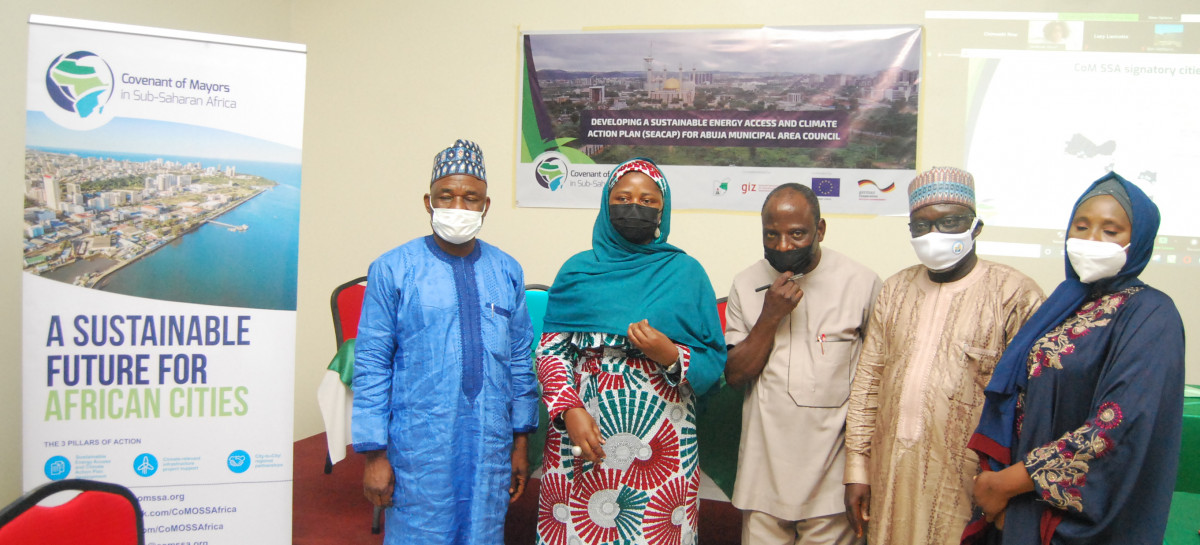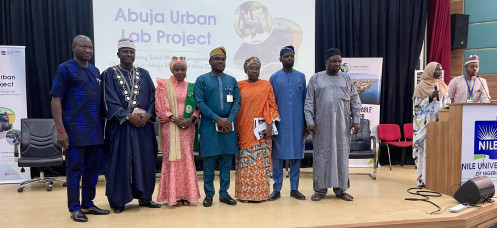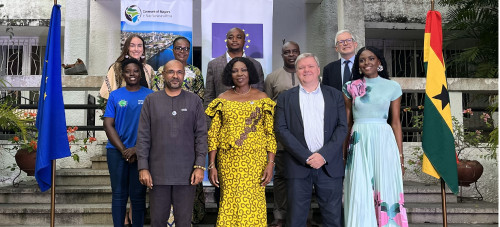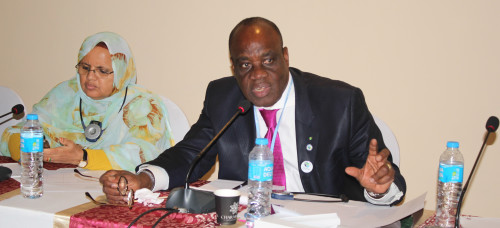Abuja in Nigeria kick starts planning for enhanced climate resilience and improved access to energy
Published: 27 May 2021

Having just recently become a CoM SSA signatory, the Abuja Municipal Area Council (AMAC) in Nigeria has already started putting together a strategy to create a robust action plan that will address climate change mitigation and adaptation as well as sustainable energy access.
When AMAC joined CoM SSA in January 2021, it immediately started work on creating a Sustainable Energy Access and Climate Action Plan (SEACAP), a key document for identifying projects and actions that will best limit the city's emissions, adapt to the impacts of climate change, and provide sustainable energy access to its citizens.
During a kick-off workshop on 8 April, GIZ and ICLEI Africa introduced AMAC officials and other stakeholders to the CoM SSA initiative and the process of developing a SEACAP.
Bringing the right people in the room
One of the most effective ways to effect change at the local government level is to get the right stakeholders in a room, representing different levels of government, ministries, and departments in order to break the mould of working in silos. The kick-off workshop achieved exactly this. The Hon. Chairman of AMAC, Hon. Abdullahi Adamu Candido was represented by the Council Secretary, Hon. Abisola Ramat Abdullahi, the Council Secretary. Participants represented a number of departments in the city, including the Departments of Environment, Agriculture, Works, Health, Finance, and Information. Representatives of the Federal Ministries of Environment, of Water Resources, and of Women Affairs were also present.
Importantly, to take climate and energy action that is tailored to the needs of the people while also attractive to funders, it is crucial to bring the private sector and civil society organisations into the same room as government officials at the start of such projects and to pay special attention to include representation from women and youth. At the AMAC SEACAP kick-off workshop, these groups were represented by the Women Rights and Sustainable Society (WRSS), Digizens, Global Initiative for Food Security and Ecosystem Preservation (GIFSEP), Nigeria Youth Climate Network, Solar Sister and Clean Technology Hub.
Getting down to the details
Completing a SEACAP, which includes a city’s baseline data, targets to achieve and actions for the three CoM SSA pillars – mitigation, adaptation and energy access – is a big achievement. By doing the necessary groundwork in terms of planning, processes, relationships and leadership will support its success. The AMAC kick-off workshop focused specifically on laying this groundwork. A capacity needs assessment revealed that, in order to successfully complete a SEACAP, stakeholders will require training on developing a Greenhouse Gas Emissions (GHG) Inventory, developing a Risk and Vulnerability Assessment (RVA), verifying climate data, and understanding and accessing climate finance.
Participants started working on a data collection strategy for the three pillars in order to collect the needed data in the most efficient and effective way possible. Participants also identified local partners that will provide important inputs into the SEACAP process. Finally, the group nominated organisations whose representatives would serve on the Steering and Projects Committees.
What is next for AMAC?
Having established the key stakeholders who will need to work together across organisations and agreed upon roles and responsibilities for developing the SEACAP, the next step for the AMAC is to start the data collection phase to inform the development of the baseline of their SEACAP. This involves creating three reports, namely a Baseline Emissions Inventory (BEI), a Risk and Vulnerability Assessment (RVA) and an Access to Energy Assessment (AEA).
First, data enumerators will receive training on conducting data collection surveys, then data will be collected via desktop reviews, surveys, and consultations with relevant departments. A series of data verification workshops will follow in order to ensure that the data is reflective of the city’s situation. The data collection phase will start in June this year.





